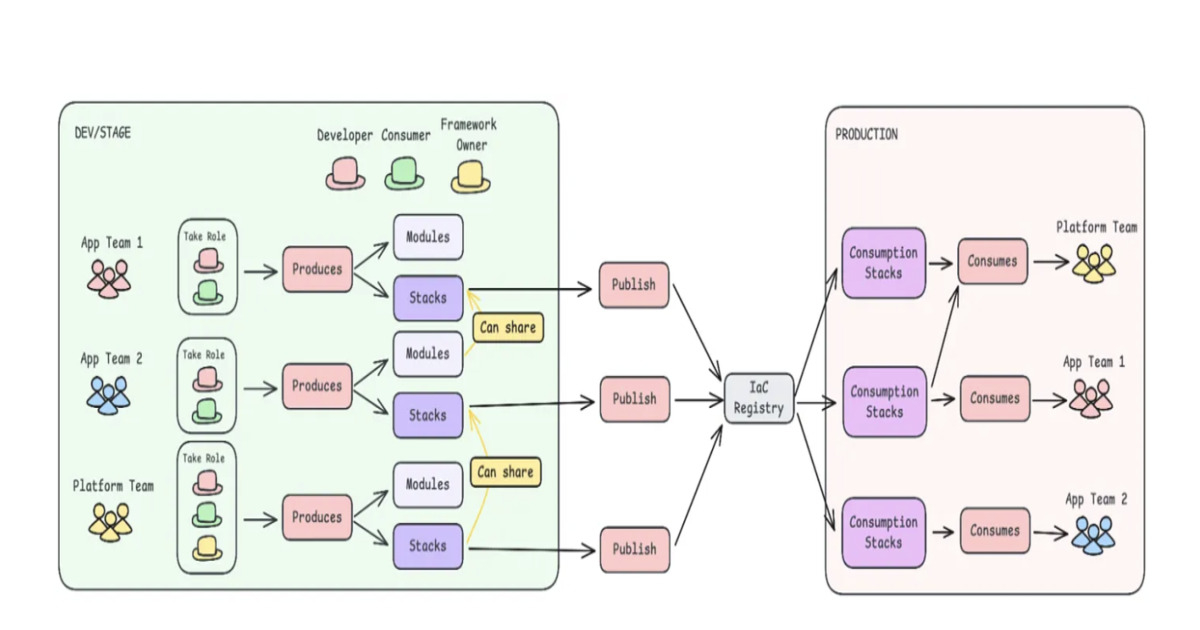Codetown
Codetown ::: a software developer's community
What's 18F?
We encourage you to adapt 18F open source projects for your work and personal purposes, whether you’re a fellow federal employee or outside government. We’ve put together a list of some 18F repositories that might be especially useful to you — for your own projects, as part of a nonprofit or business, part of a government somewhere, or for something else that you’re working on.
If you maintain your team’s websites
http://analytics.usa.gov: Publish live analytics for your website(s) on a public page — see analytics.usa.gov for an example. This can help both staff and visitors understand how people use your website. You can also separately use a component of it: Analytics Reporter, a reporting and publishing tool for Google Analytics data.
18F Pages: Help your team quickly publish static websites with 18F Pages, which is a Jekyll-based system similar to GitHub Pages that lets you use your own infrastructure. We use 18F Pages to publish guides and other simple websites on pages.18f.gov (with content hosted on GitHub).
If you help your team work together
Checklistomania: Build centrally-managed todo lists for complex processes such as team member onboarding/offboarding and management changes.
Open Opportunities: Especially for large organizations, this is a way for staff to share news about available internal tasks that might be interesting to somebody in a different part of the organization.
Tock: Track how much time team members spend on projects by asking them to fill out a weekly timesheet in Tock. It’s more convenient than a collection of spreadsheets, and lighter-weight than many of the available commercial time tracking tools.
If you build digital services for government
Compliance Masonry: Simplify the process of building certification documentation (especially for modern applications built on pre-existing systems) by generating documentation based on the OpenControl Schema, a machine-readable format for writing and generating compliance documentation.
Draft U.S. Web Design Standards: Use these pre-built UI components and visual styles to help you create beautiful, easy-to-use U.S. federal websites.
eRegulations: Make your agency’s regulations easier to find, read, and understand with this web application that you can adapt to your agency’s needs. (A collaboration between the Consumer Financial Protection Bureau and 18F.)
FISMA Ready (introduction): Make Federal Information Security Management Act compliance easier by sharing and reusing configurations and best practices for various pieces of software and tooling.
Samwise - Access the http://SAM.gov API via Ruby.
If you work with lots of data
AutoAPI: Set up a simple API engine that converts flat data files into a web service.
Document Processing Toolkit: Extract text from PDFs, and default to OCR when text extraction fails.
gapps-download: Download documents from Google Drive with a quick command so that you can easily republish them to the open web.
Open Data Maker: Turn CSV files into easily accessible open data.
rdbms-subsetter: Generate a random sample of rows from a relational database that preserves referential integrity. Good for creating test or development databases from production.
If you make websites that communicate lots of information
Accordion: Reuse this accessible JavaScript accordion component, such as for sidebar navigation.
Glossary: Add a collapsible glossary sidebar to your website to give readers a quick way to look up important specialized terms. We made this for the beta Federal Election Commission website and split it out for reuse in future projects, and now the U.S. Extractive Industries Transparency Initiative is using it too.
Linkify citations: Turn legal citations into links with this JavaScript plugin, which uses a public domain legal citation engine.
Private Eye: Using this JavaScript plugin, provide in-context indicators to readers that some of the links on a page won’t be accessible to them.
If you use Slack
Coffeemate: Help team members get to know each other by finding a teammate to have a coffee with.
Dolores Landingham Bot: Help onboard new team members with this Slack bot that sends scheduled direct messages with helpful tips.
hubot-slack-github-issues: File an issue in a GitHub repository by tagging a Slack chat message with a specific emoji reaction. For example, this is a quick way to remind yourself (or your team members) to integrate a useful piece of information from chat into the documentation for your project.
Slack Emoji Search: With this command-line utility, search for Slack messages that have been reacted to with a specific emoji.
If you use Jekyll
Jekyll Frontmatter Tests: Add tests to make sure you're always including required fields on posts or other documents.
Jekyll-get: Download data from external JSON sources to use in generating your site.
Jekyll Pages API: Generate a JSON file with data for all the pages in your site.
jekyll_pages_api_search: Add search to your site, no server required.
If you use Cloud Foundry
BOSH Release for New Relic server monitor: Set up New Relic to monitor your Cloud Foundry deployment (more about BOSH).
cg-cron: Run cron jobs in a Cloud Foundry app. Also: cf-go-cron, an experimental rewrite in Go. (These are in alpha stage.)
Cloud Foundry Deck: If you use Cloud Foundry, manage your applications with a web UI.
Cloud Foundry Notifications for Hubot: Get chat notifications (in Slack or elsewhere) about deployments of applications within Cloud Foundry.
Cloud Foundry RDS Service Broker: Manage RDS instances and a shared RDS Database. We’re working on a generic version to handle more AWS services at aws-broker, and we’ll update the community version when they’re complete.
See also: our list of cloud.gov platform tools.
If you want information about websites
domain-scan: Use this command-line tool to run several open source scanning tools on domains to measure aspects such as speed, accessibility, and HTTPS.
urlsize: Determine the file sizes of one or more URLs via this command-line tool.
For more guidance about reusing or contributing to our work, take a look at our open source policy. While not required, if you end up using one of our tools, we would love to hear from you. You can tweet at @18F, open an issue in the relevant repository to write a note about that project, or send us an email (18F@gsa.gov). Looking forward to hearing from you!
This piece was originally published on 18F blog by our colleague Britta Gustafson.
- Melody
18f.gsa.gov
Our mailing address is:
General Services Administration | 18F
1800 F ST NW
Washington, DC 20010
Notes
Welcome to Codetown!
 Codetown is a social network. It's got blogs, forums, groups, personal pages and more! You might think of Codetown as a funky camper van with lots of compartments for your stuff and a great multimedia system, too! Best of all, Codetown has room for all of your friends.
Codetown is a social network. It's got blogs, forums, groups, personal pages and more! You might think of Codetown as a funky camper van with lots of compartments for your stuff and a great multimedia system, too! Best of all, Codetown has room for all of your friends.
Created by Michael Levin Dec 18, 2008 at 6:56pm. Last updated by Michael Levin May 4, 2018.
Looking for Jobs or Staff?
Check out the Codetown Jobs group.
InfoQ Reading List
Presentation: What I Wish I Knew When I Started with Green IT

Ludi Akue discusses how the tech sector’s rising emissions impact our global climate goals. Drawing from her experience as a CTO, she explains seven key lessons for implementing Green IT. She shares insights on LCA assessments, the paradox of microservices, and why FinOps doesn’t always equal green.
By Ludi AkueVue Router 5: File-Based Routing Into Core with No Breaking Changes

Vue Router 5.0 has integrated unplugin-vue-router into its core, enhancing file-based routing and TypeScript support. This transition release boasts no breaking changes, simplifies dependencies, and introduces experimental features like data loaders and improved editor tooling. Ideal for Vue.js developers, it positions itself as a bridge to the upcoming ESM-only version 6.
By Daniel CurtisPodcast: [Video Podcast] AI Autonomy Is Redefining Architecture: Boundaries Now Matter Most

This conversation explores why generative AI is not just another automation layer but a shift into autonomy. The key idea is that we cannot retrofit AI into old procedural workflows and expect it to behave. Once autonomy is introduced, systems will drift, show emergent behaviour, and act in ways we did not explicitly script.
By Jesper LowgrenGoogle Launches Automated Review Feature in Gemini CLI Conductor

Google has enhanced its Gemini CLI extension, Conductor, by adding support for automated reviews. The company says this update allows Conductor "to go beyond just planning and execution into validation", enabling it to check AI-generated code for quality and adherence to guidelines, strengthening confidence, safety, and control in AI-assisted development workflows.
By Sergio De SimoneFrom Central Control to Team Autonomy: Rethinking Infrastructure Delivery

Adidas engineers describe shifting from a centralized Infrastructure-as-Code model to a decentralized one. Five teams autonomously deployed over 81 new infrastructure stacks in two months, using layered IaC modules, automated pipelines, and shared frameworks. The redesign illustrates how to scale infrastructure delivery while maintaining governance at scale.
By Leela Kumili
© 2026 Created by Michael Levin.
Powered by
![]()
You need to be a member of Codetown to add comments!
Join Codetown